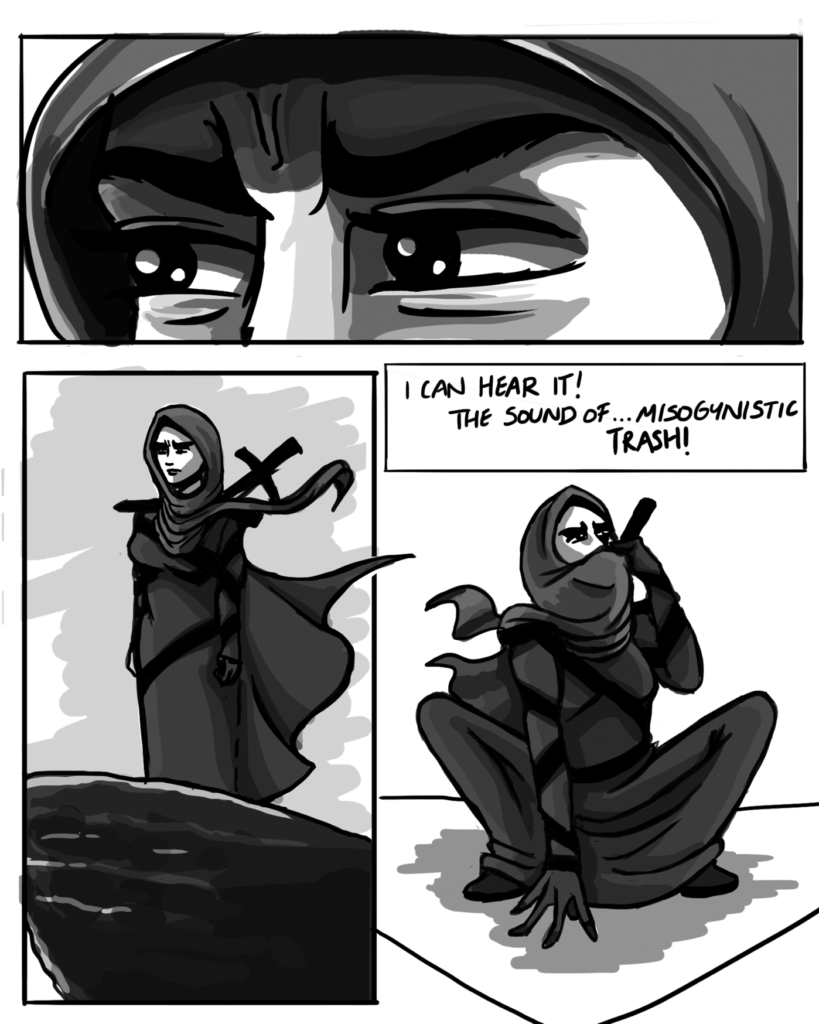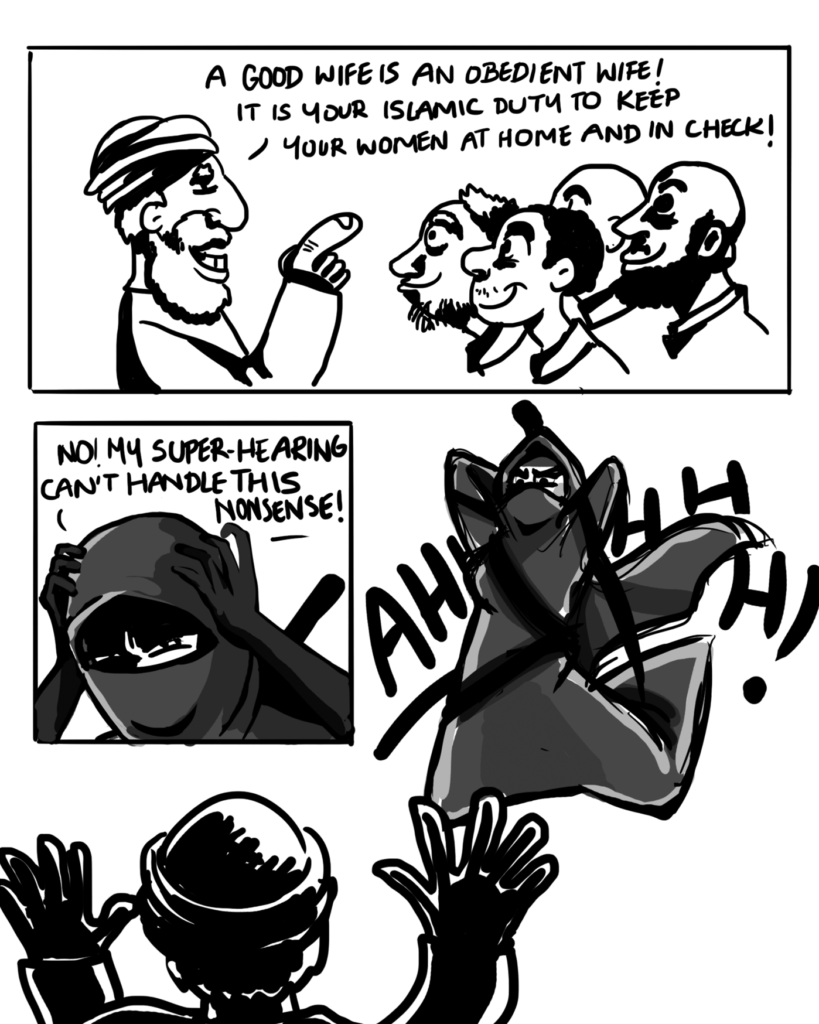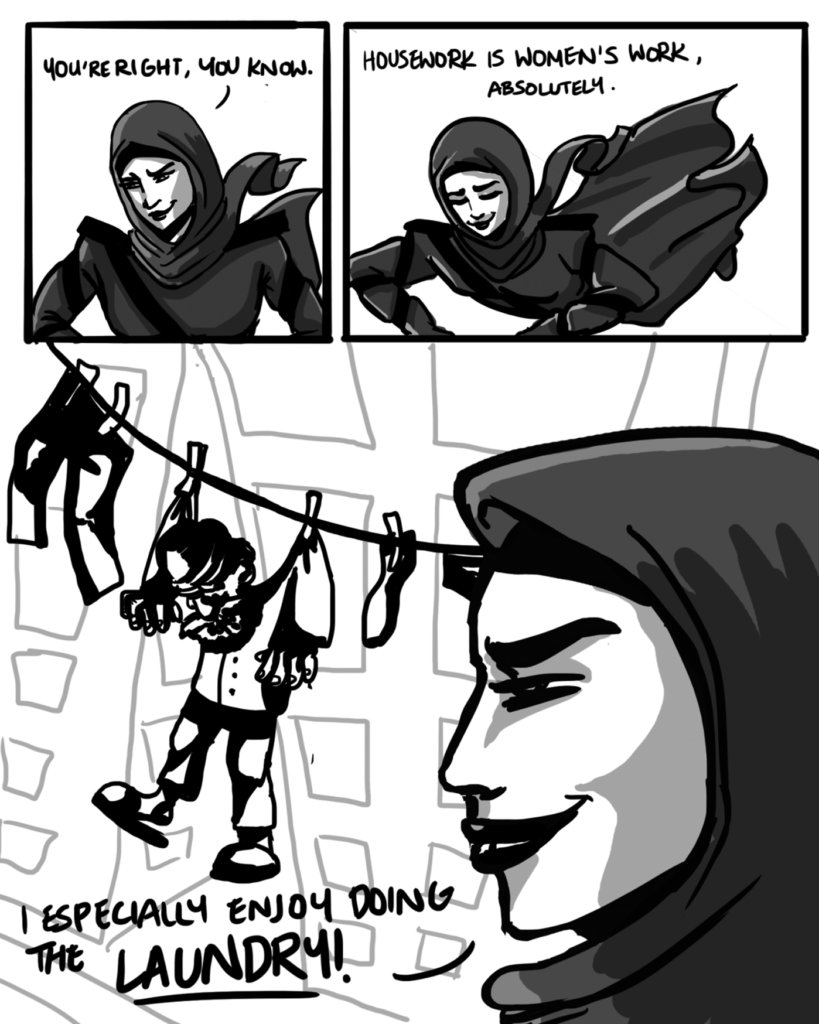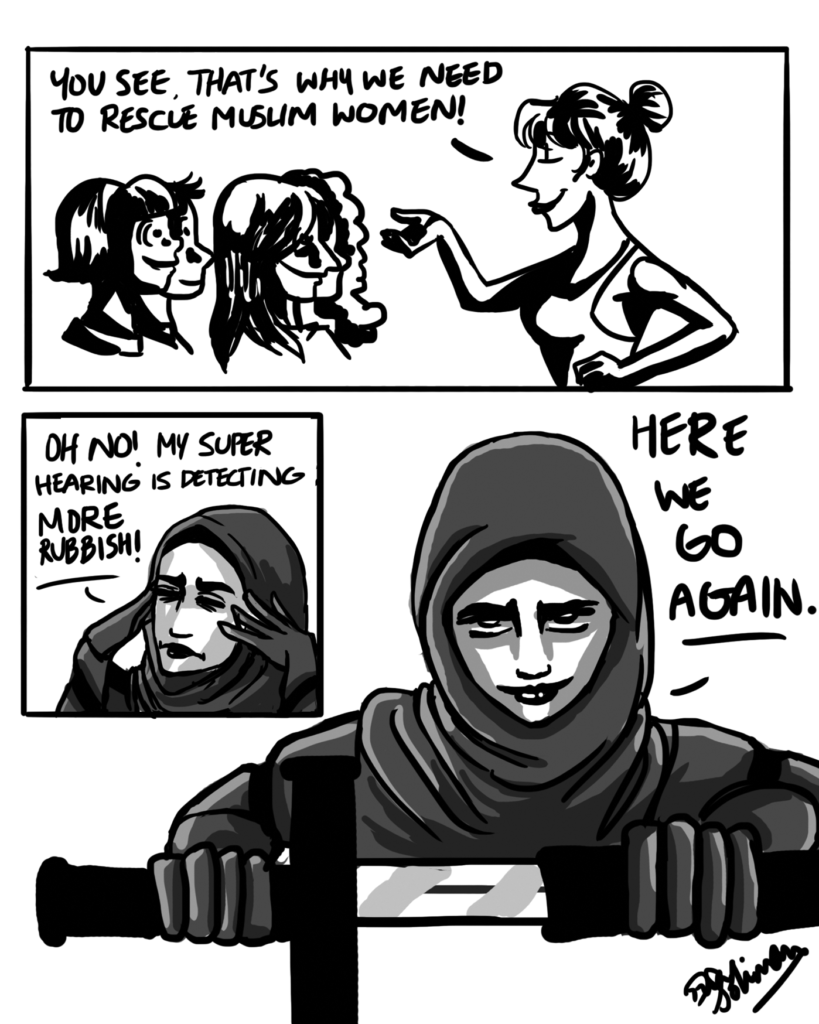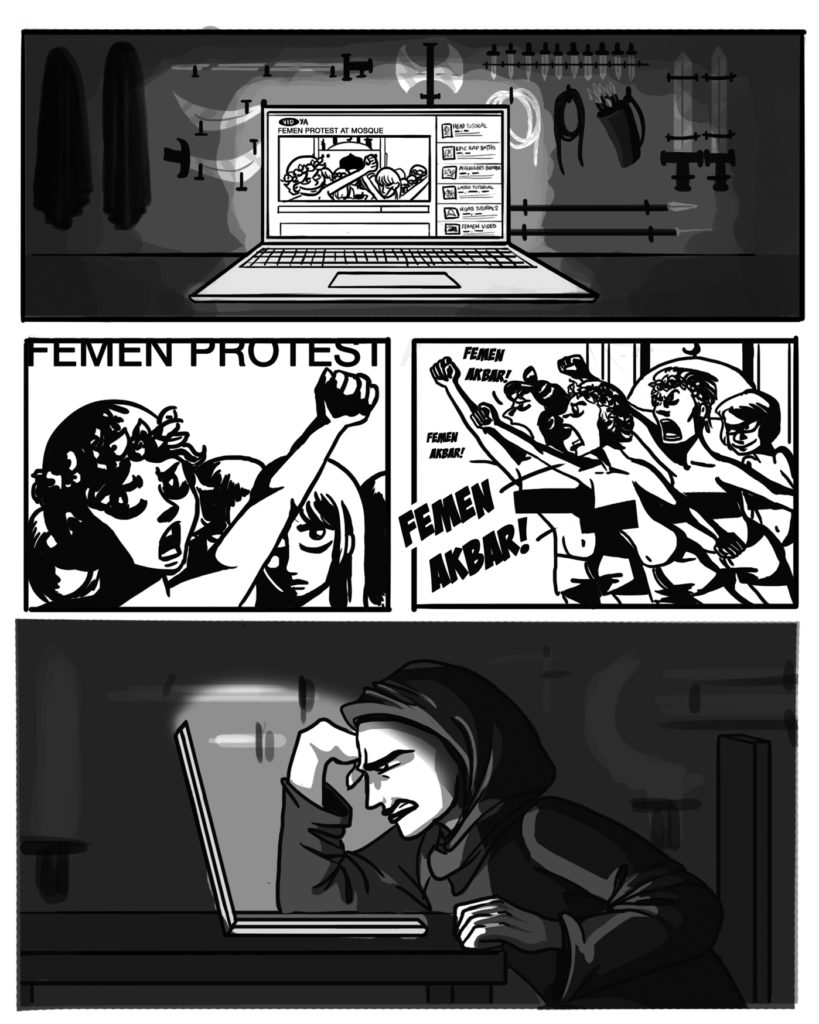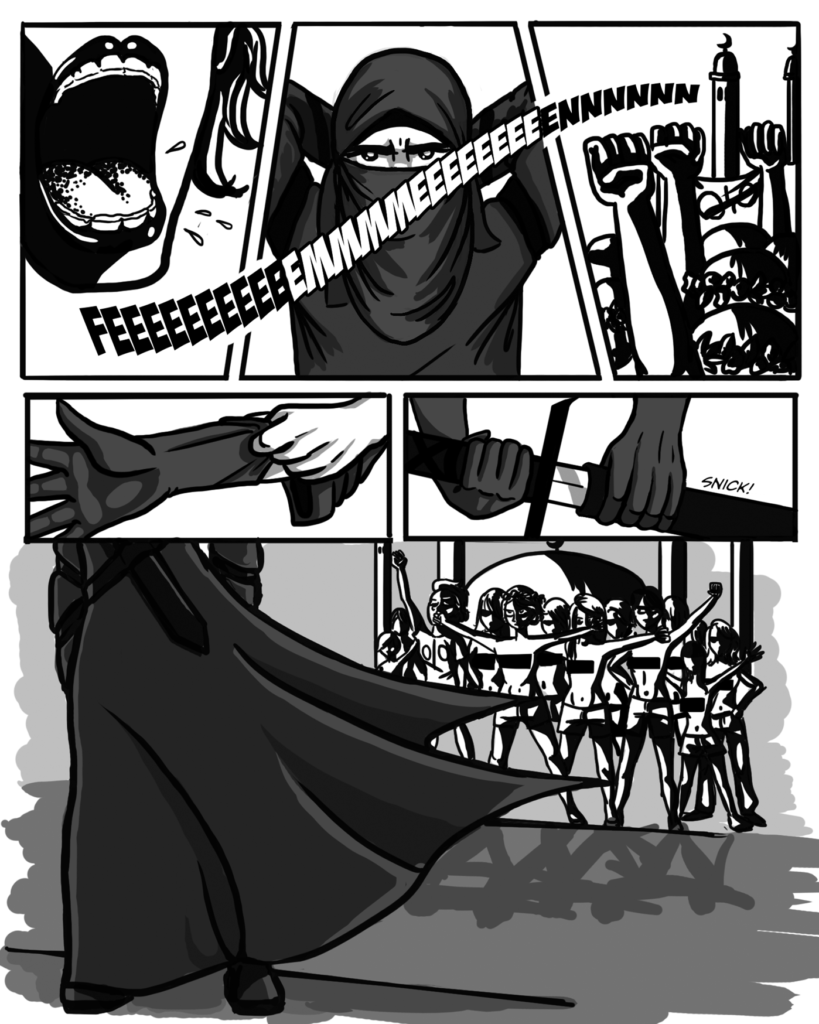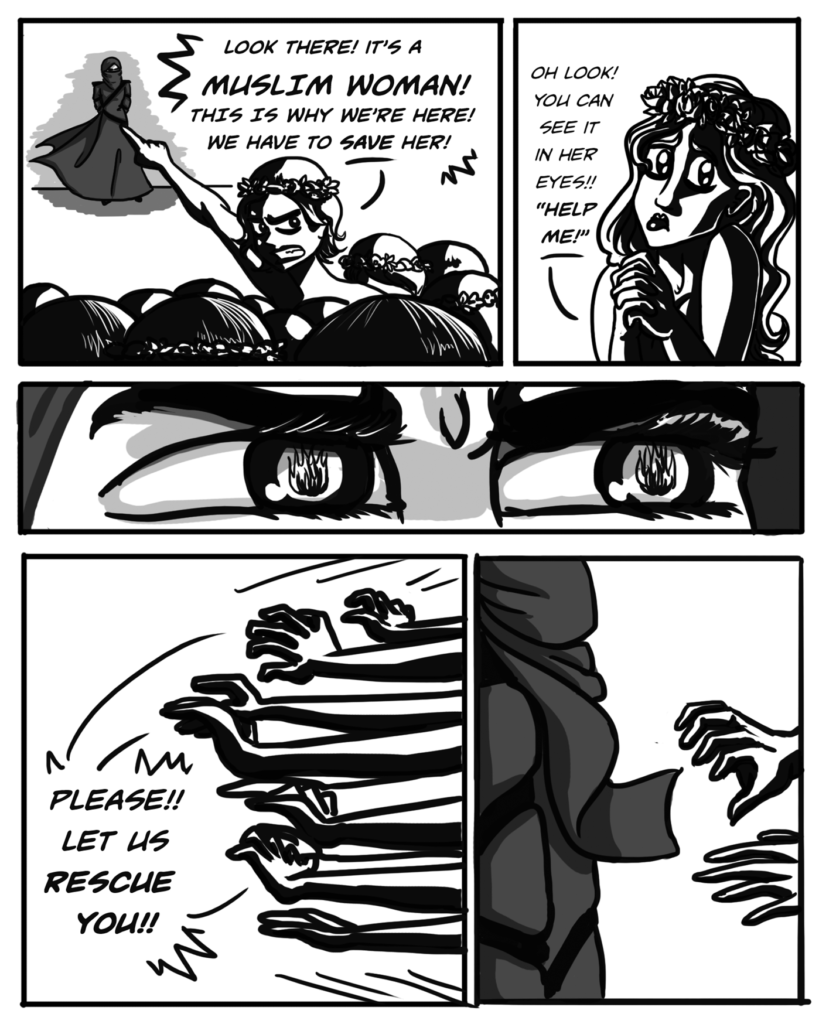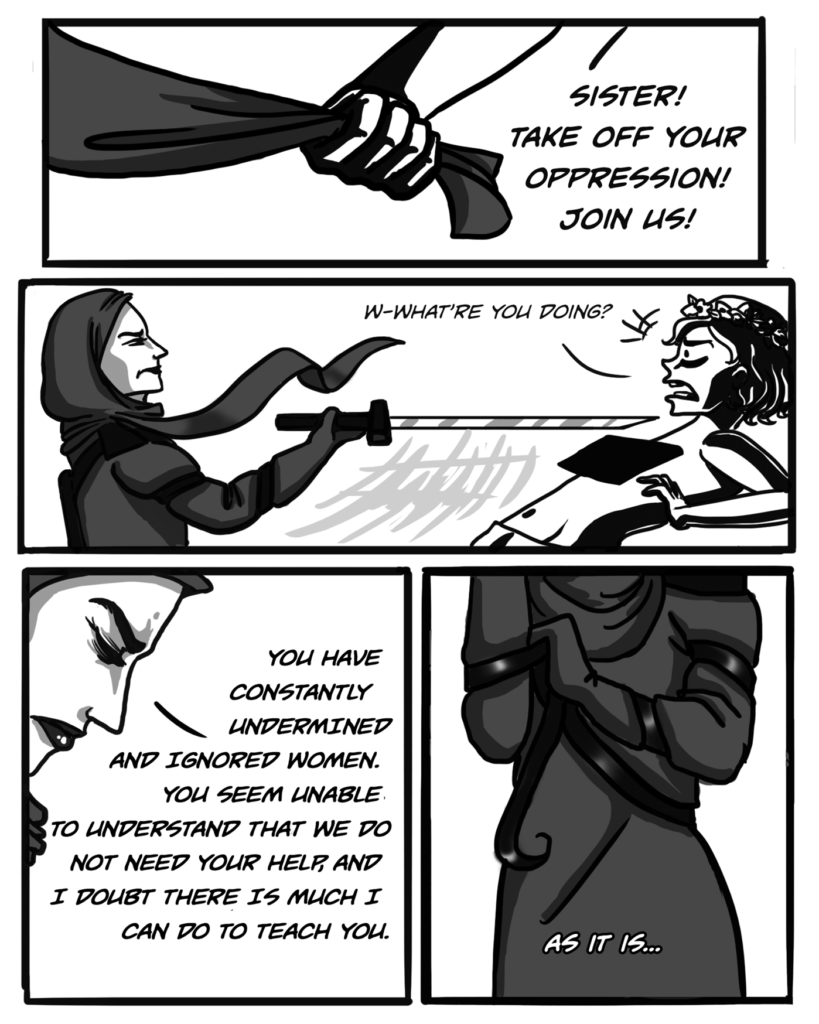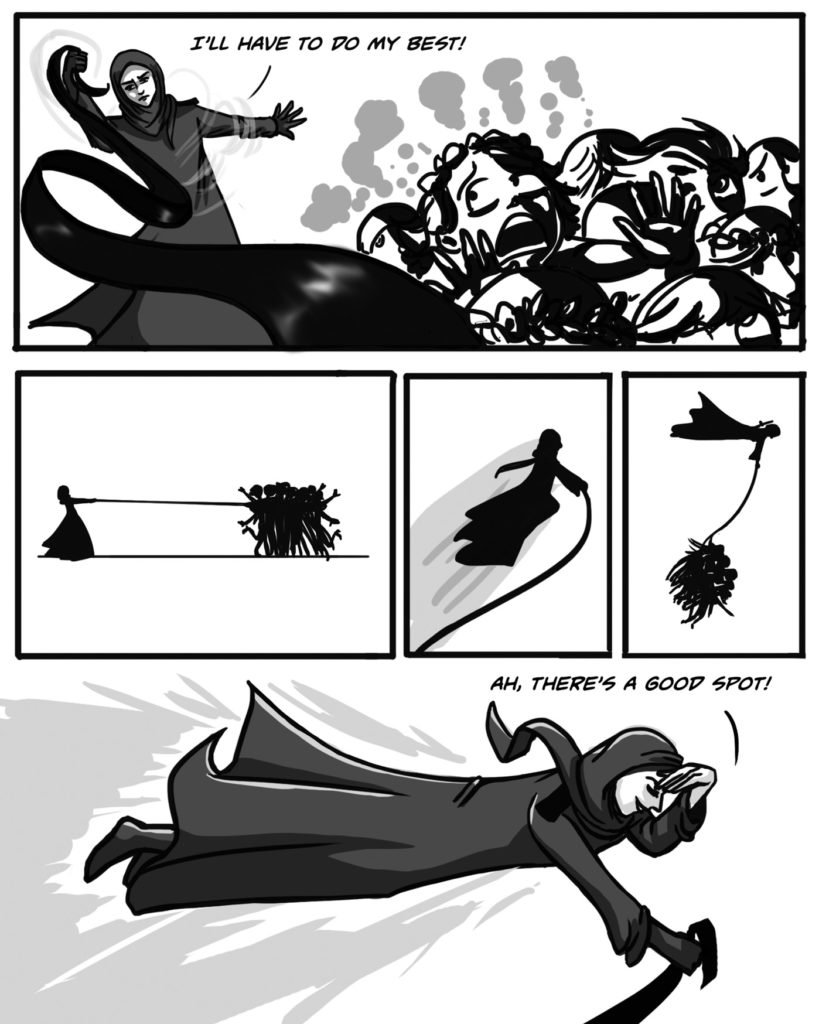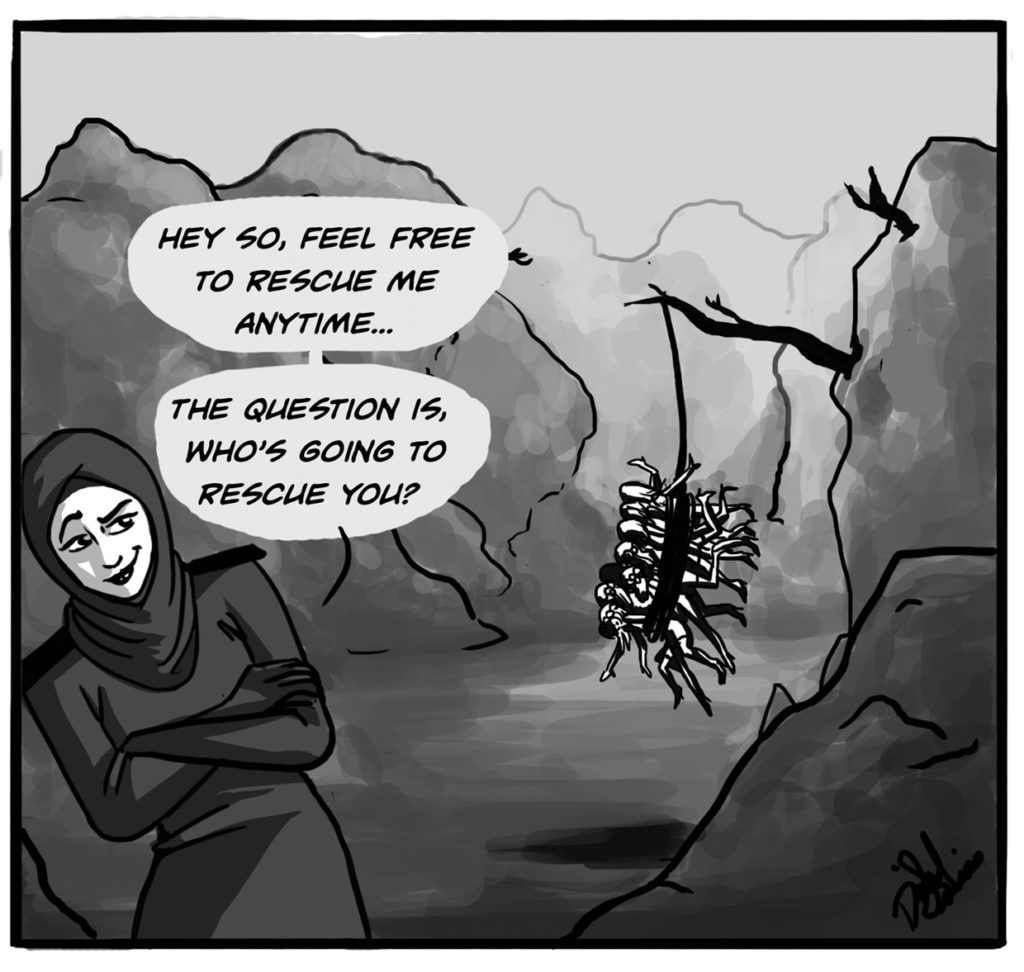It is kind of a funny story, you see! Qahera began as a joke. In 2013, then eighteen-year-old Deena Mohamed wanted to talk about a couple of small, less than controversial issues, among them islamophobia and misogyny. Superheroes were all the rage in popular culture and Mohamed had a Tumblr account where she posted her multimedia blogs. So, what was a creative to do? What if, instead of the image that, unfortunately, comes to mind when one thinks of a superhero, one instead imagines a woman? And not just any woman, but a woman in the likeness of a majority of women in contemporary Cairo – a hijabi woman. Qahera, the hijab wearing, misogynistic-butt-kicking superhero was born.
Taking the Arabic for Cairo (al-Qāhirah) as her namesake, our hero would develop over ten episodes (both in English and Arabic) taking on misinformed teahouse male gossipers, confused French women liberationists (not to mention, exhibitionists), self-absorbed musicians, and would-be agents of the patriarchy, in pursuit of justice. Qahera not only beats the bad guys, but informs the public of wrong doings and strives to broaden the discussion on various issues from the endemic nature of xenophobic sentiment, to equality, and social responsibility (especially in terms of accountability in relation to sexual harassment and violence). In an interview with Egyptian Streets, Mohamed said ‘I don’t really consider Qahera a “superhero” character so much as it [the comic] is an editorial strip – so it’s a satirical cartoon that uses the tropes of superheroism to make a point, rather than a superhero comic that addresses political issues.’ Similarly, Mohamed’s use of Qahera is to bring a face to a community otherwise left faceless and without a voice. Mohamed, herself not a hijbi, said in a behind the scene Qahera blog: ‘the women who bear the brunt of Islamophobia are invariably hijabi Muslim women, because they are very visibly Muslim. All of the Islamophobic stereotypes, and many others, are heaped upon their heads. She is a superhero who wears a hijab, not a superhero because she wears a hijab. I’m approaching this from a social perspective, not a religious one.’
‘Qahera was created to combat the patriarchy and misogyny I am familiar with,’ Mohamed continues. ‘Islamophobic logic often means critiquing your own society and will result in others using that as an excuse to claim you are “oppressed” and “backwards” and “a victim of your own culture.” Therefore, Qahera combats misogyny and Islamophobia.’
In the following pages are two episodes from the Qahera webcomic as a sample of Deena Mohamed’s work. To read her entire story thus far and keep an eye out for the next episode, visit https://qaherathesuperhero.com/.
Qahera has gained Mohamed international prestige as an illustrator and designer. Her work has been featured at exhibits all throughout Europe and garnered numerous awards and accolades. Her debut graphic novel, Shubeik Lubeik, published in Arabic by Dar El Mahrousa, is an urban fantasy trilogy that takes us to a slightly more magical Cairo and does not disappoint in continuing the social criticism and debate provoking style we have become accustomed to through Qahera. Shubeik Lubeik won Best Graphic Novel and Grand Prize of the Cairo Comix Festival in 2017. Look out for Shubeik Lubeik coming out in its English translation from Granta (in the UK) and Pantheon (in the US) in 2022 (in sha Allah).
Mohamed shares a passion not just for art for its own sake, but in working on projects that involve community development, awareness and outreach (particularly editorial illustrations) as well as children’s books. She has partnered with Viacom, UN Women, Harrassmap and Mada Masr on her projects. On 20 January 2020, she was the artist behind the Google Doodle commemorating the 106th birthday of Egyptian lawyer Mufidah Abdul Rahman.
While drawing and writing can be lonely and isolating, she loves that her work gives her the opportunity to interact with people, especially those who have read her comics. She loves to hear what other think of her work and the interpretations people take away from it, a grand dialogue of art and spectator that she is happy to be able to contribute to.
Enjoy this selection from Qahera. We hopes it inspires more informed and progressive conversations.
